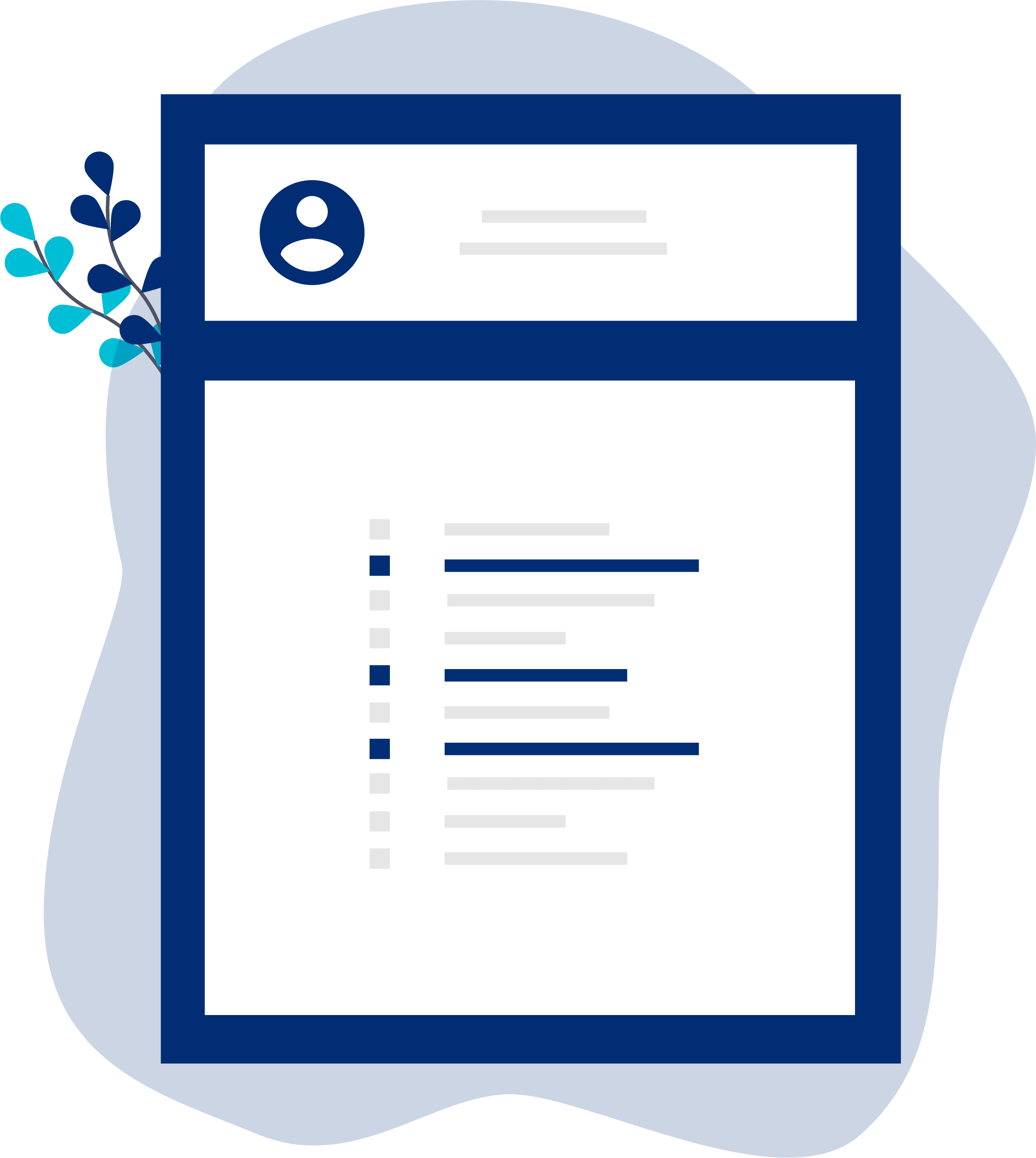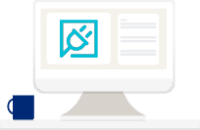The value of candidate evaluation cannot be understated. Your team is the heart of your business and good hires have the greatest impact on overall success.
The best way to ensure you’re hiring the right people for your team is by screening and evaluating candidates effectively with a consistent, proven hiring process.
If you’re scrambling to fill an important position or need to make a lot of hires quickly, candidate evaluation becomes even more challenging, and you may find yourself skipping important steps or rushing into bad hiring decisions.
But candidate evaluation is crucial during a hiring process, and it’s worth taking the time to do it correctly! We’re sharing our top tips for screening and assessing job applicants and candidates to help you make better hires.
Creating an Ideal Candidate Profile
To be effective at candidate evaluation, you have to know what kind of person you are looking for to fill your open roles. It can be hard to measure someone’s skills and experience without first setting standards and minimum requirements.
Once you have written your job description, dive deeper into what your ideal candidate looks like. At CareerPlug, we write it all down in an Ideal Candidate Profile. Check out an example below:
Getting clear on the experience and skills you want from your next hire makes it easier to determine when a qualified person has applied. You can continue to use your Ideal Candidate Profile as a guidepost through the interview stage, and it can help you make a decision when comparing your top choices.

Download a Free Ideal Candidate Profile Template
Use our template and guide to get clear on who you need for your open role and simplify candidate evaluation.
GET MY TEMPLATETo learn more about creating an Ideal Candidate Profile and how to use it for hiring, check out this video from Natalie Morgan, our Senior Director of People:
Pre-screening questions for job applicants
You can streamline candidate evaluation by including pre-screen questions on your application. Two to three questions can help you immediately weed out applicants that don’t meet the minimum qualifications for your open roles.
Pre-screen questions serve as a gatekeeper. You know that any applicants that make it past this stage have at least the bare minimum requirements for your job. Pre-screen questions also save you a lot of time and guesswork when you’re trying to hire quickly.
Keep in mind that too many pre-screen questions can overwhelm applicants, cause a poor application experience, and even cause them to abandon your application. Include only a few relevant and meaningful questions on your application. Some things you might want to ask include:
- Work availability
- Required licenses, certifications, or degrees
- Number of years experience in a certain role or industry
Reviewing resumes
Reviewing candidate resumes is the most effective way to determine whether or not you want to invite someone for an interview. Resumes can tell you a lot about a candidate – if you know what to look for. Here are some elements to focus on.
The candidate’s location
Simple, but important – the first thing to look for if you are hiring for an in-person position is the candidate’s location. If you don’t recognize the address, then type the ZIP/Postal code into an online search. If you get a qualified candidate who does not live nearby, don’t rule them out just yet. It may be worth a conversation (or at least an email/text) to see if they plan to relocate to your area.
Candidate’s objective
Next, move to the summary or objective section if the resume has one. Look for keywords that help you determine if the candidate has the experience you’re looking for and see if you can tell what next step the candidate wants to take in their career.
This is a good place to look for any major discrepancies – like if you’re hiring for an entry-level client support role and the candidate has written they are looking for a management position. These don’t always have to be deal-breakers, but it doesn’t hurt to take notes on whether or not you and this candidate are aligned on what the role entails.
Minimum qualifications
Pre-screen questions should help you determine whether someone meets your minimum qualifications, but double check that the resume includes those must-haves you are looking for.
Work history
When reviewing work history, look for specific examples of the impact a candidate has made. Dig deeper than just the job title; pay attention to how the candidate describes the role and responsibilities.
This section gives you a great idea of a candidate’s track record as an employee. Take a look at the story that the resume tells you: Do you see someone constantly advancing on a career path or an inconsistent job hopper? Past behavior is usually a good predictor of the future.
Growth potential
A specific job history isn’t the only indicator that someone might be successful in a role. Evaluate resumes for soft skills and growth potential. Soft skills in unrelated positions might be more valuable than an employee that checks all the work history boxes, but has no proven results or measurable professional growth.
Check out this video to learn more about looking for growth potential while evaluating candidates:
Ask clarifying questions
Sometimes a resume might make you excited about a candidate, but leave you with a few questions. Don’t make any assumptions about a candidate before asking some clarifying questions. You can do this during an initial phone screen or even send a quick text or email to get a little more context before moving a candidate forward.
Interview tips
Once you’ve reviewed resumes, it’s time to move qualified candidates to the interview stage. Conducting great interviews is important. Not only is this your chance to get to know potential hires, it’s also an opportunity to sell your company and create a positive candidate experience.
Interview preparation
In our annual Candidate Experience Report, we’ve consistently found that a negative experience with people in the interview process was one of the top reasons candidates turned down a job.
Preparing for interviews ahead of time not only helps you evaluate candidates more effectively – it also improves your chances of getting those top choice candidates to say yes to your job offers.
Before the interview:
- Review the Ideal Candidate Profile and make sure you have a firm grasp on the role.
- Know what you need to evaluate and be able to answer candidate questions that may arise.
- Prepare your interview questions ahead of time.
- Review the candidate’s resume, cover letter, and any other relevant data you may have collected (like assessment reports or phone screen notes).
- Share the candidate’s information with other interviewers so everyone can walk in as prepared as you.
The video below gives more advice on interview preparation:
Interview formats and types
There are several ways to conduct an interview and get to know your candidates. More than likely, you will use more than one type and format depending on the number of candidates you have and the nature of the role you are trying to fill.
Structured interviews are when an interviewer prepares a fixed set of questions to ask candidates and does not deviate from these questions at all. Unstructured interviews are a more natural conversation style of interviewing where interviewers can follow their curiosity and ask more tailored questions.
Hybrid interviews are a combination of both structured and unstructured interviews. These can take a little more skill as they require an interviewer to know when they should stay on course and when it’s ok to deviate. This can be an excellent way to get to know your candidates on a deeper level and ask all candidates the same primary questions. If you’re new to interviewing, it can be helpful to stick to a more structured approach.
Common interview questions
Verification interview questions are used to verify a candidate’s credentials and experience. They can be thought of as “fact-based” questions. For example: “What were your dates of employment? or “What were your job responsibilities?”
Opinion interview questions ask about a candidate’s perspective or opinion and can provide valuable insight into how a candidate thinks, what motivates them, what values they hold, and how they solve problems.
Behavioral questions ask for examples of how a candidate has behaved in the past, like: “Tell me about the last time you received feedback and how you responded to it.”
Most interviews will have a mix of verification, opinion, and behavioral questions. When deciding which questions are right for you, first return to your Ideal Candidate Profile. Review the desired skills, talents, and behaviors for the role — what questions will help you evaluate those criteria?
You can also match interview questions with your company’s core values to ensure you’re hiring people who align with your company culture.
Reference and background checks
We know it can be tempting for employers to skip the background and reference checks when you’re in a hurry to hire – but don’t! There are many important reasons why you should conduct both reference and background checks like workplace safety, data verification, and improved team quality.
There are many types of background checks:
- Criminal background checks
- Drug screening
- Employment and education verifications
- Civil record checks
- Driver record checks
- Identity checks
Establish a list of necessary checks consistent with your profession and business ethics. For example, if the job involves working with children, a criminal history check is mandatory.
Reference checks, which involve talking to a candidate’s previous managers or colleagues, can help you fact-check what you’ve learned about a candidate so far – which is important considering 40% of people lie on their resumes and three out of four employers have caught candidates in a lie. Be sure to ask specific questions, targeted at what you’d most like to know about an applicant.
How to avoid hiring bias
When evaluating candidates, it’s important to stay objective, and make sure that unconscious bias isn’t affecting your hiring decisions. Unconscious bias refers to social stereotypes about certain groups of people that individuals form outside their own conscious awareness.
Everyone – and we mean everyone – has unconscious bias. But it’s important to recognize when those biases crop up so you can avoid making flawed hiring decisions.
The best way to avoid hiring bias is to become aware of it. This means educating yourself and your team on common hiring biases that might affect your organization. We go over nine of the most common biases in the video below:
Having a consistent process for evaluating candidates will help you mitigate hiring bias. Your Ideal Candidate Profile, pre-screen questions, and skill assessments are important tools in evaluating candidates across the same measurable criteria. Make sure to take detailed notes throughout every stage of the hiring process and include other leaders in your decision making if you can.
Building a consistent hiring process
Having an outlined and repeatable hiring process makes identifying the right people for your team much easier. Without a structured hiring process, it’s easy to fall into costly hiring mistakes. On the other hand, a clear hiring process creates a better candidate experience and ensures that your hiring decisions are based on objective and consistent candidate evaluation.
You’ll want to have a system that helps you stick to the process. Create a hiring process checklist and use an applicant tracking system (ATS) like CareerPlug to help you evaluate quickly and consistently.

Quickly Identify the Most Qualified Candidates
Candidate evaluation doesn’t have to slip through the cracks, even when you’re busy! CareerPlug’s ATS makes evaluating candidates quick and easy with pre-screen questions in the application, built-in assessments, and interview scorecards.
TRY CAREERPLUG FOR FREE


























